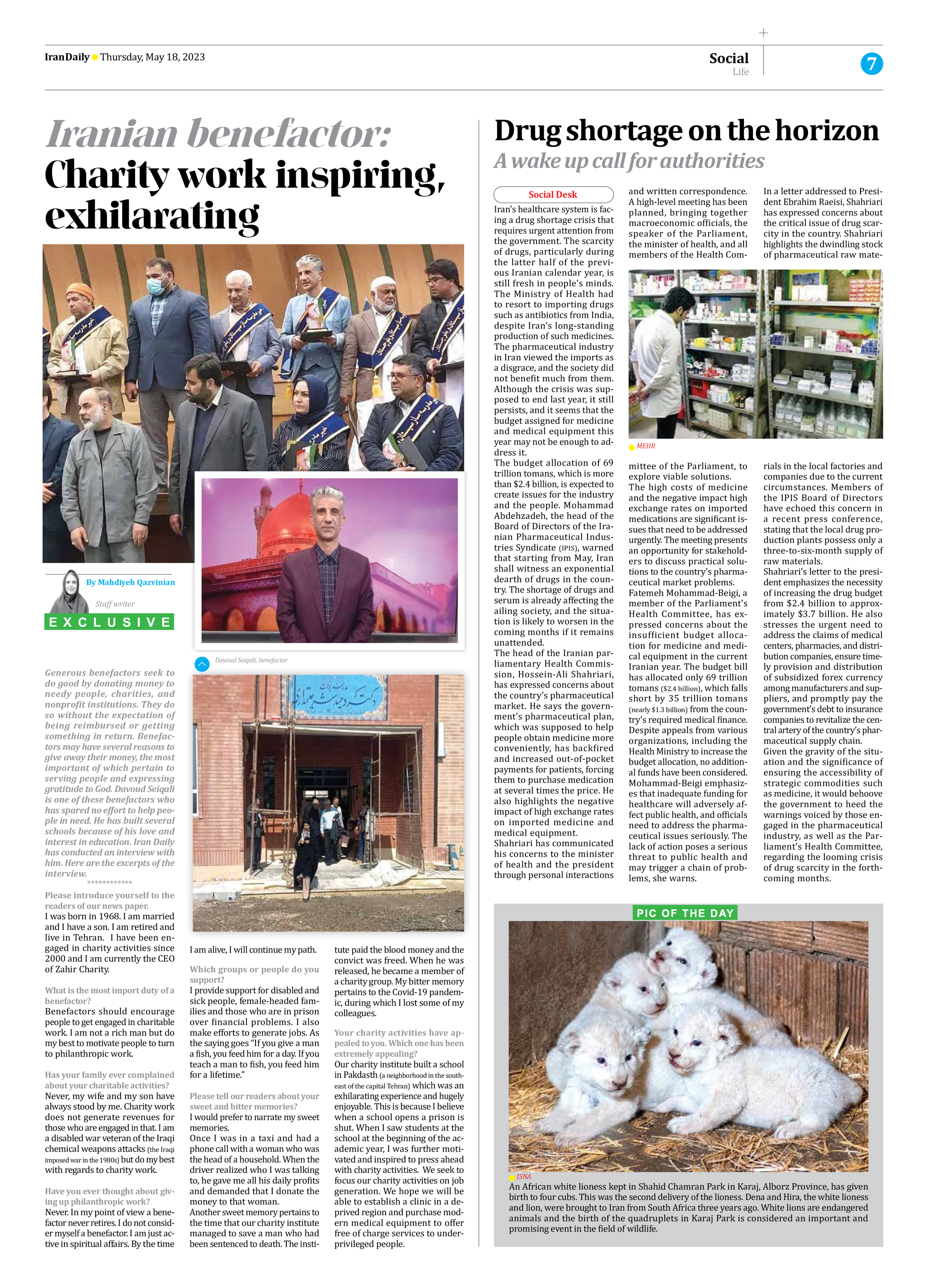
Drug shortage on the horizon A wake up call for authorities
Iran’s healthcare system is facing a drug shortage crisis that requires urgent attention from the government. The scarcity of drugs, particularly during the latter half of the previous Iranian calendar year, is still fresh in people’s minds. The Ministry of Health had to resort to importing drugs such as antibiotics from India, despite Iran’s long-standing production of such medicines. The pharmaceutical industry in Iran viewed the imports as a disgrace, and the society did not benefit much from them. Although the crisis was supposed to end last year, it still persists, and it seems that the budget assigned for medicine and medical equipment this year may not be enough to address it.
The budget allocation of 69 trillion tomans, which is more than $2.4 billion, is expected to create issues for the industry and the people. Mohammad Abdehzadeh, the head of the Board of Directors of the Iranian Pharmaceutical Industries Syndicate (IPIS), warned that starting from May, Iran shall witness an exponential dearth of drugs in the country. The shortage of drugs and serum is already affecting the ailing society, and the situation is likely to worsen in the coming months if it remains unattended.
The head of the Iranian parliamentary Health Commission, Hossein-Ali Shahriari, has expressed concerns about the country’s pharmaceutical market. He says the government’s pharmaceutical plan, which was supposed to help people obtain medicine more conveniently, has backfired and increased out-of-pocket payments for patients, forcing them to purchase medication at several times the price. He also highlights the negative impact of high exchange rates on imported medicine and medical equipment.
Shahriari has communicated his concerns to the minister of health and the president through personal interactions and written correspondence. A high-level meeting has been planned, bringing together macroeconomic officials, the speaker of the Parliament, the minister of health, and all members of the Health Committee of the Parliament, to explore viable solutions.
The high costs of medicine and the negative impact high exchange rates on imported medications are significant issues that need to be addressed urgently. The meeting presents an opportunity for stakeholders to discuss practical solutions to the country’s pharmaceutical market problems.
Fatemeh Mohammad-Beigi, a member of the Parliament’s Health Committee, has expressed concerns about the insufficient budget allocation for medicine and medical equipment in the current Iranian year. The budget bill has allocated only 69 trillion tomans ($2.4 billion), which falls short by 35 trillion tomans (nearly $1.3 billion) from the country’s required medical finance. Despite appeals from various organizations, including the Health Ministry to increase the budget allocation, no additional funds have been considered.
Mohammad-Beigi emphasizes that inadequate funding for healthcare will adversely affect public health, and officials need to address the pharmaceutical issues seriously. The lack of action poses a serious threat to public health and may trigger a chain of problems, she warns.
In a letter addressed to President Ebrahim Raeisi, Shahriari has expressed concerns about the critical issue of drug scarcity in the country. Shahriari highlights the dwindling stock of pharmaceutical raw materials in the local factories and companies due to the current circumstances. Members of the IPIS Board of Directors have echoed this concern in a recent press conference, stating that the local drug production plants possess only a three-to-six-month supply of raw materials.
Shahriari’s letter to the president emphasizes the necessity of increasing the drug budget from $2.4 billion to approximately $3.7 billion. He also stresses the urgent need to address the claims of medical centers, pharmacies, and distribution companies, ensure timely provision and distribution of subsidized forex currency among manufacturers and suppliers, and promptly pay the government’s debt to insurance companies to revitalize the central artery of the country’s pharmaceutical supply chain.
Given the gravity of the situation and the significance of ensuring the accessibility of strategic commodities such as medicine, it would behoove the government to heed the warnings voiced by those engaged in the pharmaceutical industry, as well as the Parliament’s Health Committee, regarding the looming crisis of drug scarcity in the forthcoming months.







